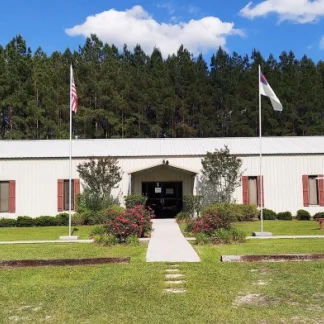Penfield Christian Homes - South Campus
Alapaha, Georgia, 15320 Highway 129, 31622
Available Programs
- Adult program
- Program for men
- Young adult program
Insurance and Financial
- Self-pay options
- Sliding scale payment assistance
About this Facility
Penfield Christian Homes - South Campus is a residential facility that offers treatment for men with substance addiction. Penfield Christian Homes is located in Alapaha, Georgia.
Penfield Christian Homes – South Campus strongly believes that their patients can achieve a recovery from alcohol and drugs through a spiritual renewal. Penfield Christian Homes’ program is based on the best research available that encourages Christian discipleship
Penfield Christian Homes is located on 7 acres that allow their patients recover in a peaceful and serene environment. The campus includes large spaces for recreation and practice sports such as baseball and volleyball. A nursing assessment is required to be completed on the day of the intake appointment and faxed to admissions. The Penfield Christian Homes program is licensed by the Georgia Department of Community Health, and certified by the Georgia Association of Recovery Residences
Contact us for more information: (229) 256-4041

Contact Penfield Christian Homes - South Campus
Connect with Penfield Christian Homes - South Campus by calling their admissions team directly.
(229) 256-4041 Website Get Directions